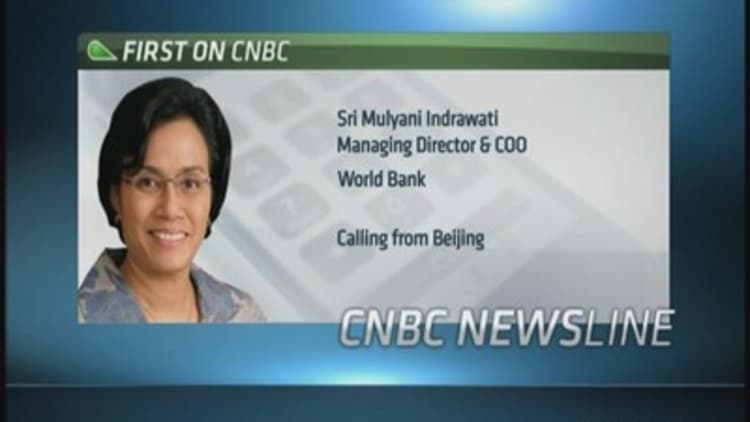China will officially launch a new $50 billion Asia Infrastructure Investment Bank on Friday as it steps up its challenge to global financial institutions like the World Bank that it feels are dominated by America and its allies.
But only 20 mostly small economies, many of them effectively client states of China, will become founding members of the bank at Friday's ceremony in Beijing after Washington lobbied furiously to stop other countries from signing up.
When it first unveiled its plan to establish the bank last year, Beijing extended a broad invitation and several European states, as well as Australia, Indonesia and South Korea initially showed interest.
But thanks to pressure from the US – conveyed by US diplomats in Beijing, Washington and other capitals – none of these countries will join the bank at this stage, although some are hoping to be involved later.
Read MoreUS opposing China's answer to World Bank
India will be the only large economy to sign up to the Chinese initiative at the ceremony in the Great Hall of the People in Beijing on Friday morning, according to people familiar with the matter.
It will be joined by Mongolia, Uzbekistan, Kazakhstan, Sri Lanka, Pakistan, Nepal, Bangladesh, Oman, Kuwait, Qatar and all of the Association of Southeast Asian Nations except Indonesia.
Indonesia excused itself from being involved at this stage, saying the newly installed government had not yet had time to consider Beijing's proposal.
By Wednesday evening, three of the agreed signatory countries were waiting for final approval from their highest level of government.

Read More China banking crisis? Here's what it might look like
The AIIB will initially be capitalized with $50 billion, most of it contributed by China, which has told other countries it hopes to quickly increase that amount to $100 billion.
With that amount, the AIIB would already be nearly two-thirds the size of the $165 billion Manila-based Asian Development Bank, which China sees as far too influenced by Japan and the US.
The new bank will initially focus on building a "new silk road", Chinese President Xi Jinping's initiative to open new trade routes to Europe. Projects will include a direct railway link from Beijing to Baghdad.
China's push for a regional institution that it would control reflects Beijing's frustration at western dominance of existing multilateral bodies.
More from the Financial Times:
Health service head calls for spending rises above inflation
Apple chief in China data security talks
Twitter seeks developers and acquisitions
For years, Chinese leaders have demanded a greater say in institutions like the World Bank, IMF and ADB but reforms to better reflect China's increased economic importance and power have been painfully slow.
The AIIB and a "Brics bank" that includes Brazil, Russia, India, South Africa and China"represent the first serious institutional challenge to the global economic order established at Bretton Woods 70 years ago this summer," according to Matthew Goodman, a scholar at the Center for Strategic and International Studies in Washington DC. "Less clear is how much of a substantive improvement these new institutions will make to global governance – or even to the interests of the countries championing them," he said.
Western diplomats say China and the US have played a cat-and-mouse game in recent months, with Beijing misleading some European countries into believing other European capitals had already joined the initiative and Washington pressuring its allies to ignore Chinese overtures.
US officials have said they do not want to support an initiative Washington thinks is unlikely to promote good environmental, procurement and human rights standards in the way the World Bank and ADB are required to do.
Read MoreWorld Bank cost-cutting finance chief declines bonus
But Chinese officials view American opposition as an attempt to contain its global rise and its ambition to be the dominant power in Asia.
"You could think of this as a basketball game in which the US wants to set the duration of the game, the size of the court, the height of the basket and everything else to suit itself," said Wei Jianguo, a former vice-minister of commerce. "In fact, the US just wants to exclude China from the game."

